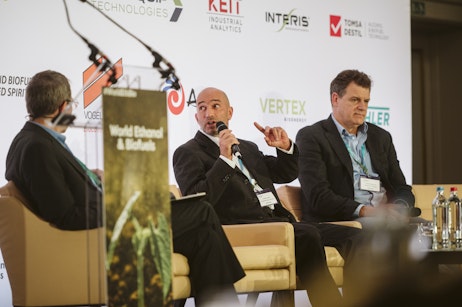29th Annual World Ethanol & Biofuels in Madrid— global leadership since 1997
The premier stage for biofuels insights, policy & global connections
Shaping global biofuels & ethanol markets for nearly three decades
Delivering cutting edge intelligence. Uniting policymakers, CEOs, innovators, scientists, and traders worldwide.
6-8 October 2026 | Madrid, Spain
The must attend event for anyone serious about biofuels
+
Global Attendees
%
Ethanol & Biofuels Producers
%
Decision makers
+
Countries
29
Years of Industry Leadership
World Ethanol & Biofuels moves to Madrid!
Top minds in biofuels and ethanol driving the global conversation. Join expert-led dialogue with regulators and industry leaders.
Global Expertise, Regulatory Clarity, Premium Networking
The global stage for biofuels policy
Meet top regulators from Europe, the USA, and Brazil shaping international biofuels strategies.
The world's ethanol producers united
One location. Countless perspectives. Critical conversations that shape the future of ethanol and biofuels.
Global insight, local relevance
Join 400+ industry leaders for in-depth coverage of European and international biofuels market trends.
Scaling biofuels for the energy transition
Powering progress through biofuels - uniting producers with global aviation, shipping and road transport leaders to build the partnerships and solutions that accelerate decarbonisation.
Elite networking, designed for deal-making
From exclusive producer breakfasts to curated one-on-one meetings, World Ethanol & Biofuels 2025 is built to spark genuine connections that lead to real business.
Strategic European location
Connect with key regulators at the heart of European policy making in Brussels.
What’s new at World Ethanol & Biofuels 2025
SAF Summit
Featuring European Commission participation and discussions on sustainable aviation fuels and EU energy strategy.
Geopolitics evening seminar
Exploring geopolitics and global trade, and their impact on biofuels feedstocks, supply chains, and market stability
A cross section of elite analysts
Hear from leading analysts including Argus, Green Pool Commodities and Stratas Advisors, and other leading experts in global biofuels market intelligence.

















